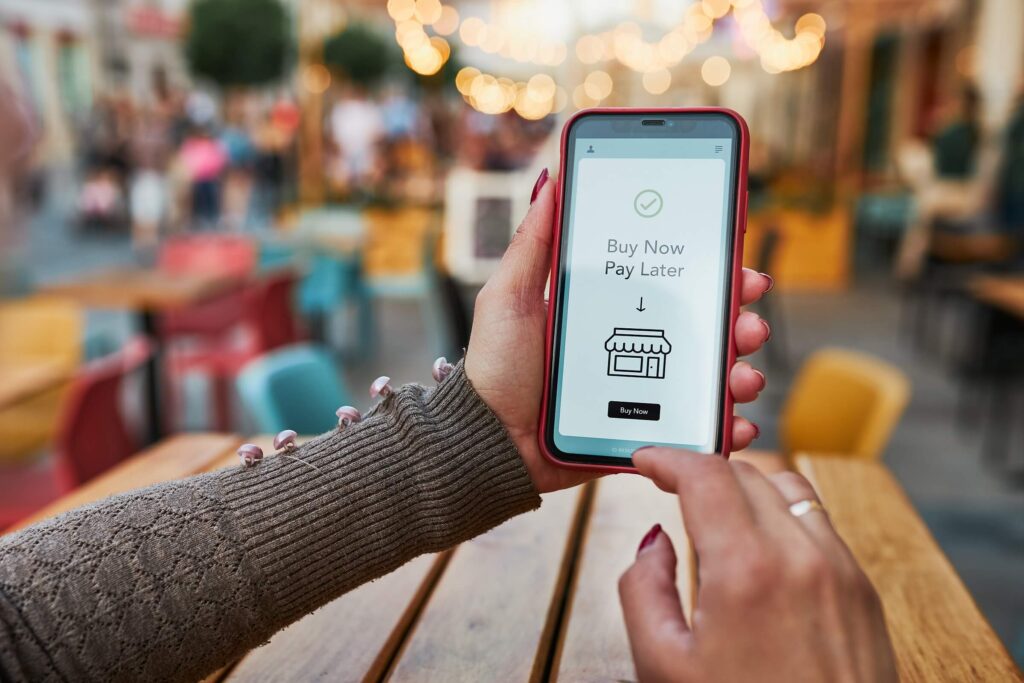So, you’ve decided to buy a house?! Firstly, congratulations! It’s an exciting occasion and one worth celebrating. But before you start colour coding your moving boxes (it’s a thing; ask my wife), read on to learn the top 10 things not to do when applying for a home loan. (Click here for my TOP FIVE tips to make the banks love you!)
Maybe you’re on day one of your property search, maybe you’ve already got a pre-approved loan in place. Whatever stage you’re at before buying your house the tips below could be the difference between a smart move or a stressful one.
While some of these traps might be obvious, there are some that will catch out even those who’ve bought property before.
Top 10 things not to do when applying for a home loan
- Don’t quit your day job
- Don’t finance a new car/boat/caravan
- Don’t get a new credit card (or increase your existing limits)
- Don’t try to hide anything
- Don’t forget to pay your bills on time
- Don’t splurge on buy-now-pay-later
- Don’t shop around at all the banks
- Don’t increase your subscriptions and memberships
- Don’t eat into your deposit
- Don’t overspend on your house.

1. Don’t quit your day job
If you want to borrow money, you’ll need to show the bank how you can pay that money back. The only way to do that is to show regular income. For that reason, if possible, it’s best not to leave your job or change jobs before applying for a home loan.
That’s not to say that if you must leave your job, for whatever reason, that you wouldn’t be able to get a loan. But leaving or changing employment right before you apply for a loan can potentially limit your options. Each bank has their own policies for minimum time of employment. Some will accept borrowers during a probation period, and some won’t. Often though, if you’ve recently changed jobs (say, within the last three months), you could be limited to lenders offering higher than average interest rates. So if you’ve recently changed jobs and you can wait between 6 and 12 months before buying property, you’ll have more competitive options to choose from.
2. Don’t finance a new car/boat/caravan/jet ski… you get the picture
Given that buying a house is likely to be the largest purchase you’ll ever make, you should prioritise it accordingly. Meaning you should preserve your borrowing power. If you’re about to buy a house and you decide to lease a new car (or other big-ticket item) you’ll impact two things: your credit score and debt-to-income ratio. Both of these can affect your options for securing a great home loan.
Whenever you apply for a loan, whether it’s a credit card, car loan or home loan, it will show up as an ‘enquiry’ on your credit file. If you have lots of enquiries on your file it can lower your credit score and raise alarms with lenders. It’s worth noting that if you’re applying for a home loan as a couple, the lender will look at each individual’s credit score (so there’ll be no hiding those click frenzies from your other half).
What’s a credit score, exactly? It’s a rating between 0 and 1,200 that lenders use as one of the factors to determine whether to give you a loan (or a credit card, for that matter). The higher your rating, the better your chances of being approved. You can check your credit score here. If you’re thinking about buying in the future it’s a good idea to know what your credit score is now so you can take steps to improve your rating if necessary.
Your debt-to-income ratio (DTI) is a metric often used by lenders to automatically decline an application. As a rule of thumb your total value of debts (including home loans, car loans, credit cards and other debts), divided by your total income should be less than about 6 to 8 (depending on the lender) for you to remain eligible for a loan with the majority of lenders. Banks want to ensure that their clients don’t overcommit on their ability to repay loans, and the DTI is a useful measure of this.

3. Don’t get a new credit card (or increase your existing limits)
Getting a new credit card, and therefore increasing your likelihood of credit card debt, will show up on your credit file. Banks must assume that you’ll spend on your credit card every month and so they account for this when assessing your fixed monthly costs.
The same goes if you increase your credit card limit. For example, if you have a credit card with an original limit of $10,000 and then you increase the limit to $15,000, banks will automatically add about $200 of fixed expenses to your monthly spending. In some cases, this could be the difference between getting a loan and not getting a loan.
4. Don’t try to hide anything (liabilities)
What do we mean by ‘liabilities? In finance, a liability is any money that you owe. As a general rule, when applying for a home loan, don’t try to hide anything – you might be surprised at what information a bank could find out without too much trouble. More specifically though, don’t try to hide any liabilities because these are some of the first things a lender would uncover.
You’d be amazed how many people have an ‘emergency’ or, ‘travel’ credit card with a $20,000 limit that they never use (or have completely forgotten about!). Never using it isn’t the problem here; the problem is that the banks will see this credit limit available to you and assume that you could spend that much. Every. Single. Month – yikes! This alone would add between $700 and $800 of fixed expenses to your monthly commitments when assessed by the bank and could sink your application on the spot.
Other liabilities like car loans, student HECS/HELP loans, personal loans or ‘bonus credit cards’ from retail stores will all be discovered by the bank when you apply for a loan. You can include child maintenance in this list too. There’s no point trying to hide liabilities – if you pay it, declare it. And if you don’t need your credit cards, closing those accounts will reduce your DTI and improve your serviceability.
5. Don’t forget to pay your bills on time
What consequences does a late bill payment actually have on your ability to get a new loan? You might be surprised.
Your credit file shows a 2-year history of your repayment behaviour. So even that one time a year ago when you were high on life in Fiji and forgot to make your credit card payment is going to show up on your file. Missed your internet bill payment because you broke both your arms and were stuck in hospital? Dog ate your computer? Sorry; those missed payments will show on your credit file too. And you can’t add a cute note about how the postman stole your electricity bill and ‘It won’t happen again Mister Bank, I promise’, to your credit file. Any late payments will drag down your entire credit score.
It pays to realise too, that the later the payment is made, the more damage it does to your credit score. The best way to combat bill-payment-forgetfulness is through automation. Whenever you get a new bill or you know you’re going to have to make regular payments for something, set up an automated payment so that it will happen without you having to think about it. Perfect for phone and internet bills, electricity and water payments, and of course credit cards and loan repayments too.

6. Don’t splurge on buy-now-pay-later
When used well, buy-now-pay-later (BNPL) facilities can assist in managing your monthly budget. BNPL can be a good alternative instead of having a credit card – whereby you’re just using BNPL on the odd occasion, rather than tapping a credit card like it’s going out of style. BNPL is really only a sensible option if you absolutely need something small-ish that you can’t afford to pay for in full today (say, your darling child dropped and broke the iPad they need for school) and you’ll be able to cover the costs soon without adding too much strain to your budget.
However, for the most part, BNPL is more of a curse than a convenience. It’s easy to see something you want NOW and justify, ‘Well, I know I’m getting paid next week, so I’ll buy this new-release-iPhone-that-I-definitely-need-right-now and worry about the cost later’, but does it occur to you that the reason you can’t pay the full price today is because you don’t have enough cash to cover it? What will you need to sacrifice over the next month or two while you’re paying off this purchase?
Bringing this back to your loan application – these BNPL debts will not only add to your monthly expenses but also to your debt-to-income ratio. So, before you go and buy all your new furniture and a home theater system on BNPL, remember that each bank has its own policy on DTI and if you can keep yours as low as possible it’ll help keep your options open for which banks will lend you money.
7. Don’t shop around all the banks
While this might sound a little strange coming from a mortgage broker, it’s actually one of the more crucial tips. Think about it: you’ve seen a few ads for good home loan deals so you get in touch with a handful of banks to see what they can offer you and before you know it you’ve got four or five different banks trying to sign you up for a loan.
This sounds great in theory, particularly if you’re actively negotiating on rates and fees with all of them to get the best deal. However (and it’s a BIG ‘however’!) the banks will each end up logging a credit enquiry for your loan and, if you haven’t picked up by now, loan enquiries appear on your credit file! In fact, loan enquiries remain on your credit file for five years.
Now, it’s not a crime to have enquiries on your file – not by any stretch – but since lenders look at your credit file, and they can see that you’ve enquired for a loan of the same size at three other banks in the last month, they’re going to be suspicious about why you didn’t proceed with any of the other lenders. They’ll wonder if there’s something about your application that the other banks picked up on that would render you ineligible for a loan.
Working with a broker can help to avoid this major misstep.
8. Don’t start new memberships or subscription services
Now is not the time to add to your fixed monthly expenditure. Read: it’s not the time to get hooked on Netflix. You want to show the banks that your fixed monthly expenses are low, so if you must start a new subscription just before applying for a loan, maybe try to even it out by cancelling one of your other subscriptions (*cough* gym membership *cough*).
9. Don’t eat into your deposit
This tip is specifically for when you get a pre-approved home loan (which, in case you’re new to the lingo, is when a bank tells you what they’re prepared to lend you, before you find a house to buy). Accidentally spending cash that was intended for your deposit after you’ve been given a pre-approval is a no-no. Firstly, you’ll have less cash to put towards your new property which means you’ll need to borrow more. Secondly, you’ll also have to restart the loan process from scratch! It’s much harder to go back to the bank and ask for more money than it is to ask for a larger sum of money in the first place.
For example, if you originally have a pre-approval for $1,000,000 but you end up only needing $950,000 for the property you want to buy, this is not an issue for the bank because it doesn’t alter their risk in lending you money.
On the other hand, if you originally apply for a loan of $950,000 but then blow a wad of cash on new furniture, outdoor settings and home appliances and suddenly need to borrow $1,000,000 – that is a change to the bank’s risk and you’d need a whole new loan application and bank assessment.
So, if you think you’ll need to spend on those luxuries – that’s fine – but you should set that money aside in a separate account from your home loan savings.

And, finally:
10. Don’t overspend on your new house
Like the previous tip, paying too much for your new house could spark the need for a new loan application – so avoid that if you can!
In some cases, if you overspend on your house budget and need a higher loan you might not qualify with the same bank you’d originally chosen. This could mean you end up having to go to a lender with a higher interest rate or additional fees and charges which will obviously increase your monthly repayments.
The best way to avoid overpaying for a house is to figure out what you’re comfortable repaying per month, and then getting a pre-approval and sticking to that limit.
Final thoughts
Whether you’re about to apply for a loan, or you’ve already got a pre-approval, there are measures you can take to ensure the banks like what they see when they assess your final home loan application.
When it comes down to it, be mindful about what actions could show up on your credit file. Think twice before increasing your credit card limit, leasing a new car, or shopping around with multiple banks. These things will add fixed costs into your monthly budget which will then reduce your borrowing capacity. Worse still, they’ll add a hit to your credit file and reduce your credit score. When it comes to applying for a home loan, now’s the time to protect your credit file as much as possible.
Have another tip to add? I’d love to hear it! Leave a comment below.